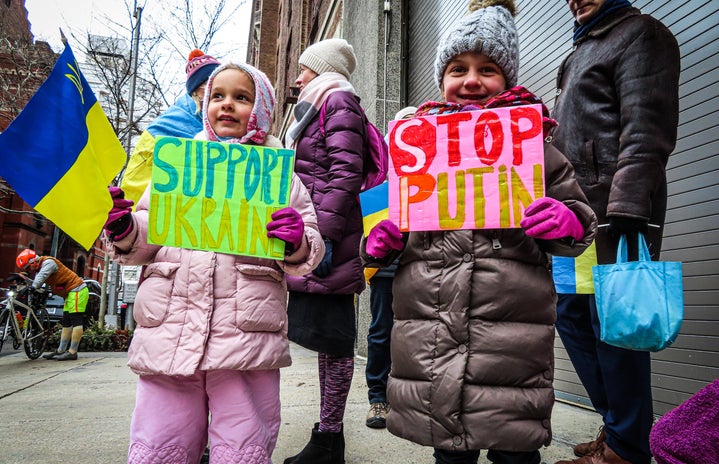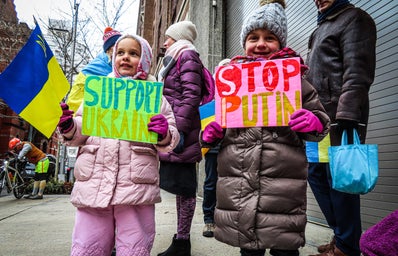The Russian invasion of Ukraine has been plastered all over international news and social media. I have found it very overwhelming to find resources on what I should know and how to best support Ukrainian people during this time. Here are five facts about the Ukrainian invasion, what you need to know and how you can help.
1. Think before you post on social media
I don’t think there is any perfect way of dealing with the outright human rights violations we are seeing in Ukraine. I do think, however, there is a line that should not be crossed and that is joking about Ukraine on social media.
The amount of desensitization to tragedy that I have seen on social media as of late is concerning. Americans tend to separate themselves from other global happenings. This ethnocentric viewpoint is to the disservice of people who are currently suffering and aids in the desensitization necessary to commit such war crimes.
2. Research and learn about the historical precedent of Ukraine and Russia
Russia and Ukraine’s history is fraught with tension. To start, Ukraine was one of the most prominent republics of the Soviet Union during World War II. When Ukraine gained its independence in 1991, it laid the foundation for the continued desires of Western affiliation and entrance into the North Atlantic Treaty Organization (NATO) and the European Union (EU).
Tensions began to soar after Russia annexed the Ukrainian peninsula of Crimea in 2014, which is when armed conflict began. To put it simply, Ukraine’s admittance into NATO and/or the EU would be a direct threat to Vladimir Putin’s end goal of reclaiming Ukraine as a Russian territory. I suggest a more in-depth reading of the issue by visiting the Council on Foreign Relations website.
3. Recognize the anti-Blackness occurring
When we look at what is happening in Ukraine, there has been an outpouring of international support. This support needs to extend to all people who are trying to flee Ukraine. There have been documented instances of Black people being shoved out of the way to accommodate white passengers while trying to board trains to safety.
African and Caribbean students have told their stories of being actively turned away at Poland’s border while Ukrainians are allowed passage. In all actuality, 20% of university students in Ukraine are African. African students have also been the first to say that they are not the only ones this is happening to, despite being disproportionately affected. They claim that anyone at the border who is not white is facing increased difficulty gaining safe passage.
Here is a LinkTree by @BlackPeopleinUkraine on Instagram that has resources and donation forms to support Black people in Ukraine.
4. Keep sharing information and discussing
Social media is an incredible tool when we use it for good. Keep sharing resources and posts related to the crisis in Ukraine. Also, continue discussing the issue with those in your circles who might have other ideas and ways to help.
5. Donate your time and resources
The Cuthas compiled a list of organizations in need of donations. If you are not in a financial place where donations are possible, you can volunteer with organizations like Nova Ukraineor sign up for newsletters to stay informed and ensure you are spreading accurate information.


